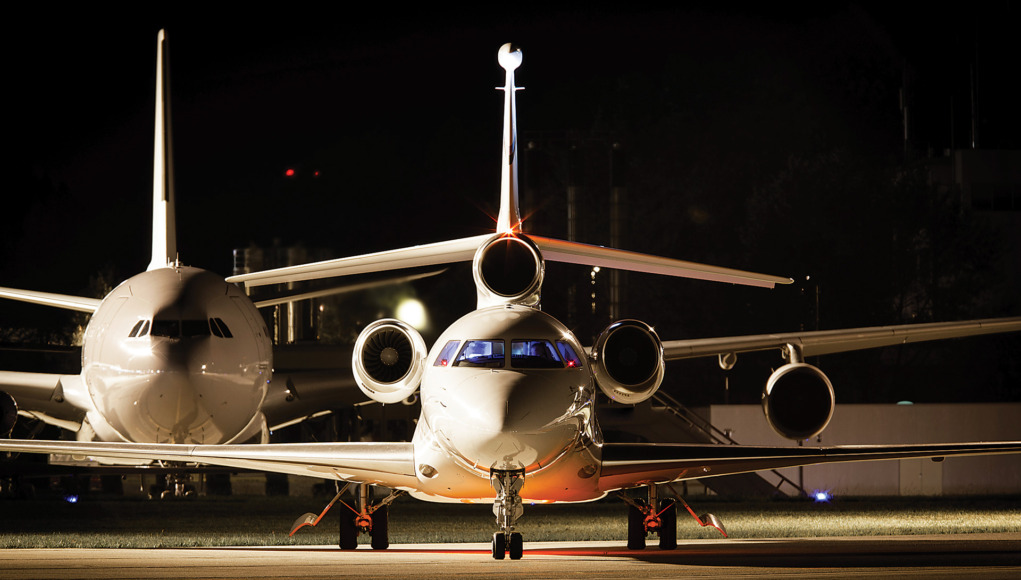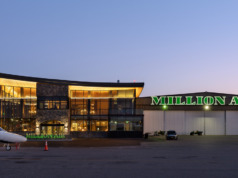Ramp accidents cost airlines alone around $10 billion each year, according to the Flight Safety Foundation (FSF), with damage to aircraft occurring about once every 1,000 flights, despite the safety performance parameters defined in airline/ground handler contracts. And each year, about 243,000 people are injured, at the rate of 9 per 1,000 departures.
More than $2 billion in corporate aircraft damage occurs annually at Fixed Base Operations (FBOs). Unlike commercial airlines, both FAR Part 91 and Part 135 charter operations lack direct contracts with ground service providers, specifying safety standards as well as your particular service requirements. Without a Safety Management System (SMS) in place, there is little analysis of “what could go wrong” and “how do we mitigate the identified and anticipated potential hazards?”
Not only does this adversely affect operating efficiency, it drives up both your insurance premiums and the price you pay for services at FBOs. While your flight operation may already use the International Standard for Business Aircraft Operations (IS-BAO) to help ensure your in-flight safety, the above data indicate the need for your ground support network to do the same, by adopting the International Standard for Business Aircraft Handlers (IS-BAH).
IS-BAO defines a Safety Management System (SMS) for flight operations (See “Sending Out An SMS,” BAA September 2014). It’s a system-based approach to managing operations, and shifts flight safety from reactive to proactive; that is, anticipating hazards rather than responding after the fact. Its four components are policy, safety risk management, safety assurance, and safety promotion.
IS-BAH does the same for ground operations. It ensures that employees are trained for the duties they perform based on operating risk, gives them a role in feedback about operations, and encourages a culture in which the FBO can learn from individuals’ errors. It also promotes safety management skills, and reinforces those concepts through awareness, coaching, collaboration, and learning.
The NTSB cites requiring SMS in their “Top 10 Most Wanted List,” and the National Air Transportation Association (NATA) actively supports a more systematic collaboration between operators and ground handlers.
IS-BAH soon will be mandatory for charter companies operating under Federal Aviation Regulation (FAR) Part 135. Larger, more safety-focused charter/aircraft management companies, as well as ground support organizations, are not waiting for SMS implementation to become law. They already have in place, or are installing, IS-BAH-compliant systems.
For the ground handler to implement IS-BAH and SMS takes a commitment of resources: both financial and the time it takes to train staff and implement the new system. And while your flight department may seek the cheapest fuel, if the FBO does not have these systems in place, it is a false economy when your safety – and that of your aircraft – is at risk.
What can you do to encourage safety on the ground?
- Require that the FBOs chosen to fuel your aircraft at home and on the road make both flight and ramp safety a priority, that they are IS-BAH certified, and can show evidence of an active, effective SMS program.
- Seek out FBOs that participate in the NATA and NBAA initiatives to implement SMS and the best practices for COVID-19 management, and which use fuelers adhering to the standards established by the Air Transport Association Specification 103.
- Recognize that selecting a ground handler based on price alone creates tremendous pressure on operators and ground handling companies to perpetuate the status quo. Because the costs of ground damages fall into the “insurance bucket,” the true cost of always choosing the lowest cost service provider actually creates the highest cost in the long run.
Using only IS-BAH-certified FBOs will lead to a significant shift in the safety, quality, and efficiency of your flying, on the ground as well as in the air. BAA
Sheryl Clarke is the Director of Safety & Security for Jet Linx. With 30 years of air carrier and military expertise in standards, safety, and flight operations, she is Vice Chair of the NATA Safety committee.






Great information, Sheryl. It’s time for all FBOs to step up to a higher standard of safety and hopefully more operators will use IS-BAH certified FBOs.
Hi Craig- Thanks for the comment – I agree and I’ll piggyback on that, that it is equally important that customers demand that the FBO’s they use are the ones making the effort to conform with IS-BAH or an equivalent safety standard (SMS integrated). It establishes they expect the same level of safety from ground handling as they expect for their flight itself and they establish “we expect integrated system safety.” Quality matters! Thanks again for posting!